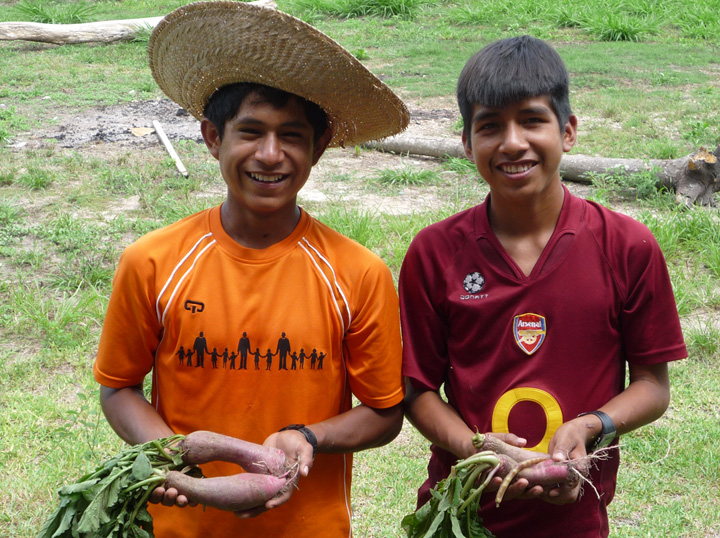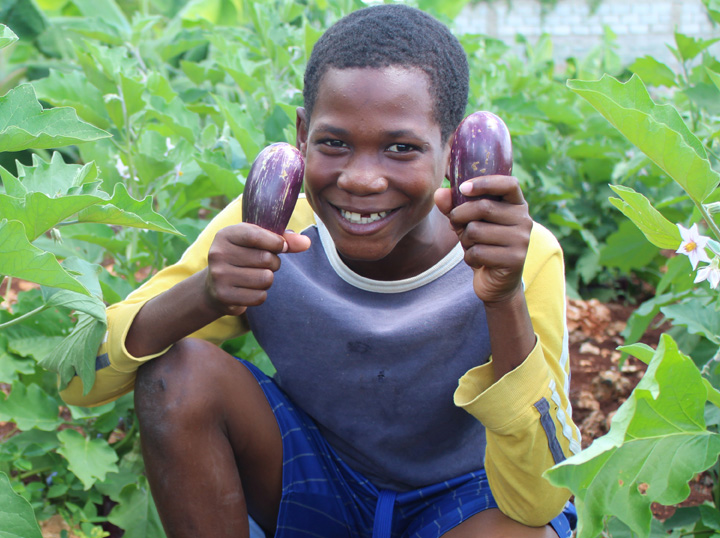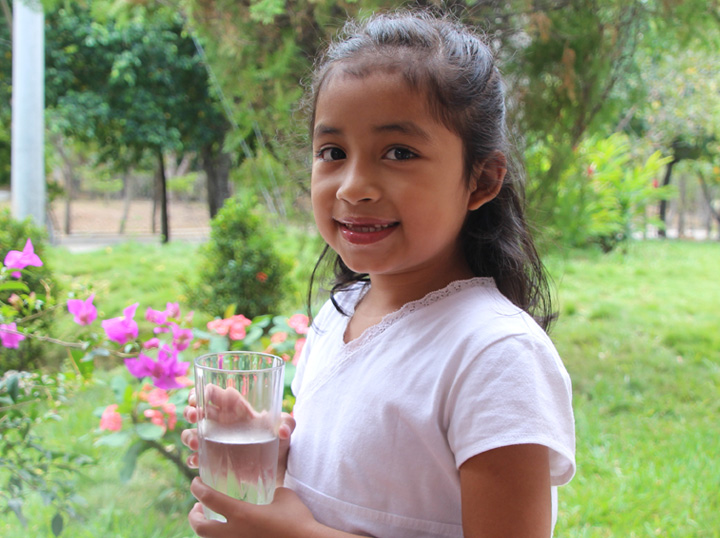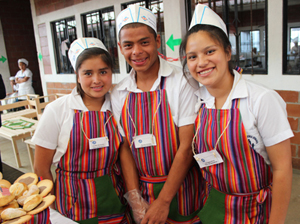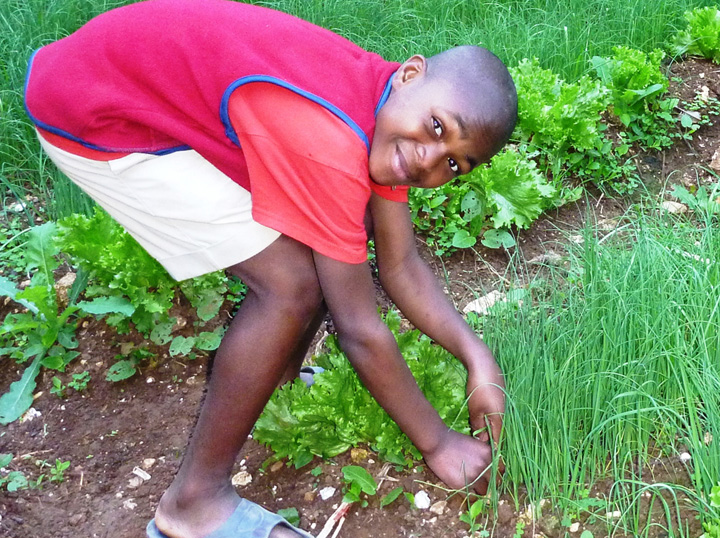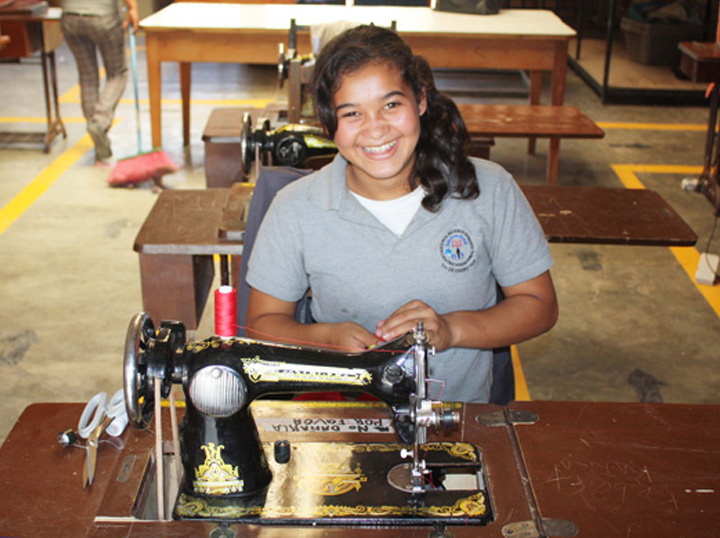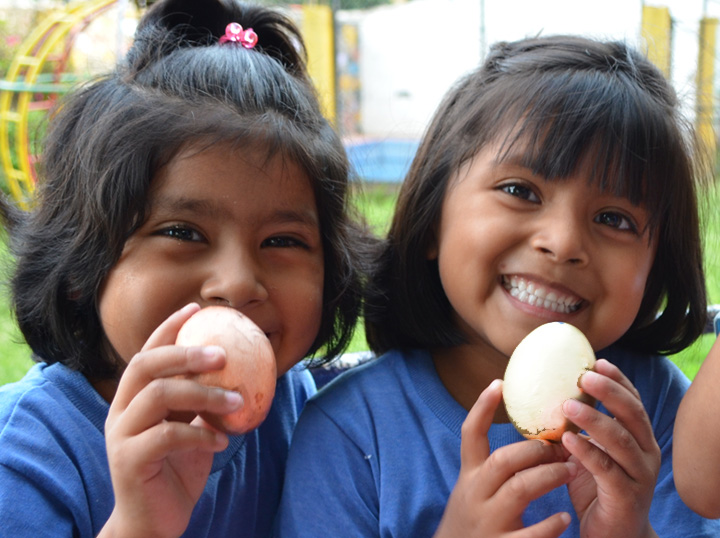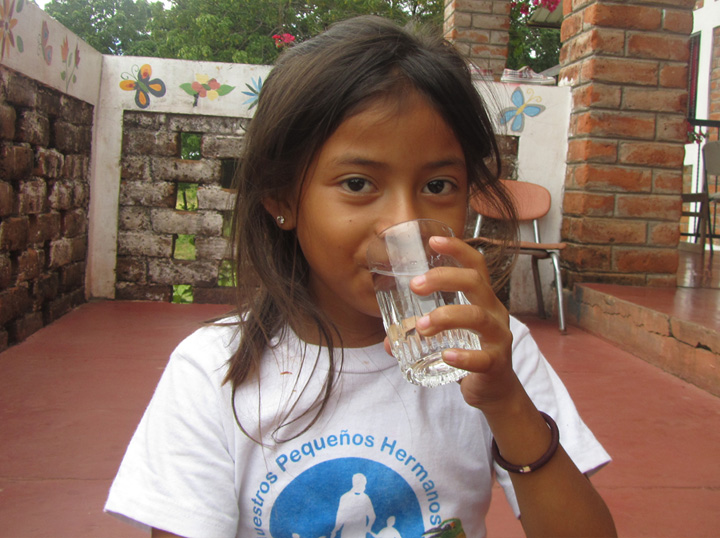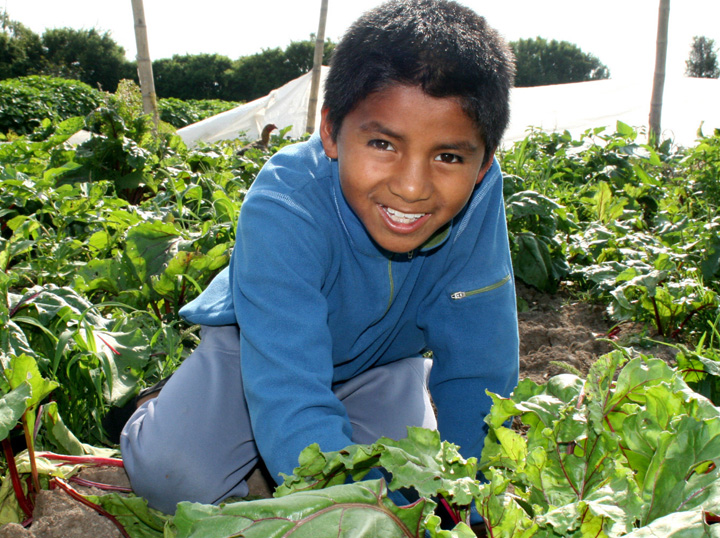Sustainability Programs
The NPH homes strive to be as self-sufficient as possible. This helps lower expenses and provides the opportunity to teach children valuable skills. It also reduces the homes’ impact on the environment. Features vary by
home and may include:
- Gardens, farms and greenhouses
- Vocational workshops that produce baked goods, furniture, shoes and clothes
- Independent water systems, including wells, towers and treatment facilities
- Solar powered utilities
NPH Sustainability Programs at a Glance
NPH BOLIVIA:
- Farm land: 3 acres
- Raising cows, fish, pigs and sheep
- Growing beans, cabbage, onions and tomatoes
- Independent water system with well and tower that can support consumption by 500 people
- Trash separation (organic vs. non-organic)
NPH Dominican Republic:
- Farm land: 24 acres
- Raising cows, goats and pigs
- Produces 13% of all food consumed
- Independent water system with wells and tower
- Solar power at a visitor’s house
- Garbage separation/selling recyclables
NPH El Salvador:
- Farm land: 80 acres
- Raising cows for milk and meat
- Produces 100% of corn: 90% used for kitchen and 10% for livestock; 100% of sorgum: all used for livestock; 80% of milk consumed on site; value for all: nearly $36,000
- Independent water system with well, pumps and waste water treatment plant
NPH Guatemala:
- Farm land: 3 acres
- Raising cows and pigs
- Independent water system with well, tower and sewage treatment plant
- Solar water heaters in 90% of home, and power in two houses
- Some furniture is made in vocational workshops; a café and a green bean cultivation project raise funds for the home
NPH Haiti:
- Farm land: .12 acres
- Raising chickens, goats and fish
- Tilapia project yielded 24,000 pounds of fish in 2015
- Bread and rolls made onsite
- Produces 20% of all food consumed
- Solar power at main school, water heaters at two houses and some electricity at St. Damien Pediatric Hospital
NPH Honduras:
- Farm land: 22 acres
- Raising chickens, cows, rabbits and pigs
- Grows a variety of fruits and vegetables; makes bread, cheese and tortillas on site
- Rain catchment/irrigation systems
- Solar water heaters at most houses
- Half of all furniture, shoes and school uniforms made in vocational workshops
NPH Mexico:
- Farm land: 138 acres
- Raising chickens, fish, sheep and pigs
- Produces 59% of all food consumed at main home, including 13 tons of corn and 1,500 tilapia each month
- “Green stations” (small ponds) improve irrigation and help prevent crop fires
- Solar water heaters at girls’ house
NPH Nicaragua:
- Farm land: 130 acres
- Raising chickens, cows, fish and pigs
- Produces 87% of basic grains, 50% of vegetables, 15% of fruit and 75-80% meat consumed
- Independent water system with wells, tower and sewage treatment plant
- Solar water heater at visitor’s house
NPH Peru:
- Farm land: 2.5 acres
- Growing beans, beets, cucumbers, lettuce, onions, radishes and sweet potatoes
- Independent water system with well, tower and sewage treatment plant
- Solar water heaters at all but one house
How you can help
Your gift can help the NPH homes provide for their own needs.
| $405 | pays the salary of a farm worker at NPH Honduras for one month | |
| $1,000 | provides 2,200 pounds of seed corn for NPH El Salvador | |
| $2,083 | purchases pig feed for NPH Mexico for one month | |
| 25,000 | buys dairy cows for four NPH homes | |
| $11,890 | pays for the farm expenses at NPH Nicaragua for six months |
More Information:
• Our Homes
• Our Children
• Outreach Programs
• Healthcare Programs
• Nutrition at NPH
• Sustainability Fact Sheet
• Education Program
• Higher Education Program
• The Seattle Institute Leadership Program
• Girls’ Empowerment Programs








